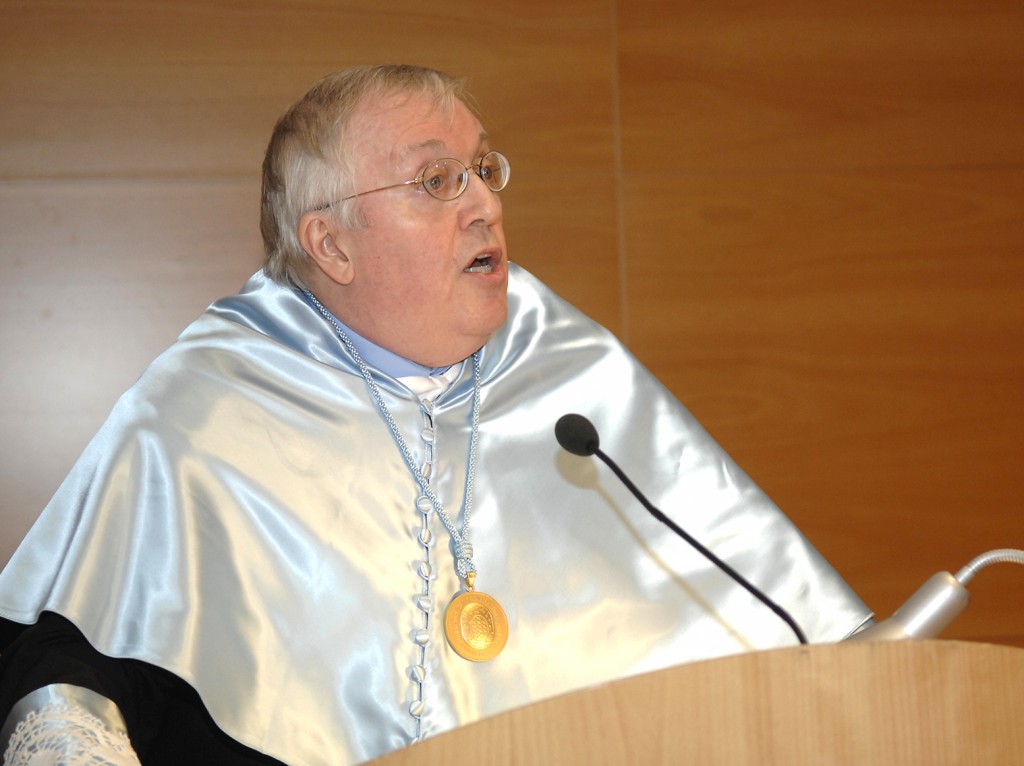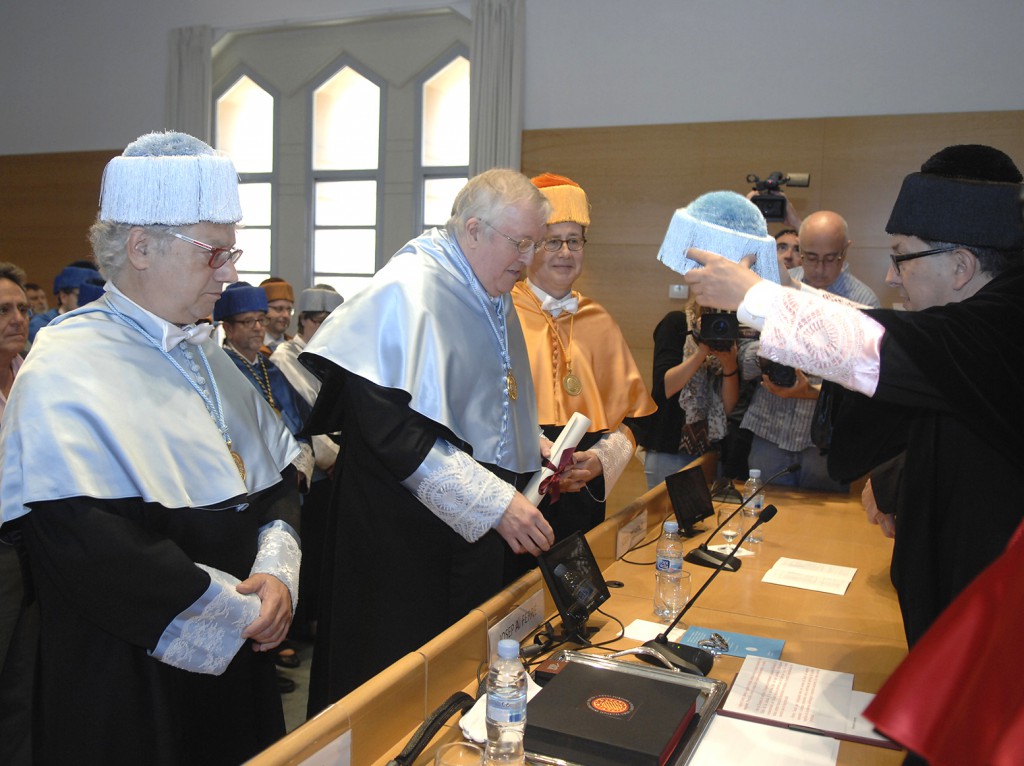15/05/2015
The Hispanist historian Paul Preston is awarded an honorary doctorate by the URV
On Friday 15 May the URV awarded an honorary doctorate to Paul Preston, 69, in an academic ceremony in the Auditorium at the Offices of the Rector. The URV is the first university in Catalonia and in the Spanish State to award an honorary doctorate to Paul Preston, who was born in Liverpool and is one of the most widely respected historians of contemporary Spanish history

On Friday 15 May the URV awarded an honorary doctorate to Paul Preston, 69, in an academic ceremony in the Auditorium at the Offices of the Rector. The URV is the first university in Catalonia and in the Spanish State to award an honorary doctorate to Paul Preston, who was born in Liverpool and is one of the most widely respected historians of contemporary Spanish history
The award was first proposed by the Faculty of Arts and was sponsored by Josep Sànchez-Cervelló, Professor of Contemporary History, and Alberto Reig, Professor of Law.
During his tribute to Preston, Josep Sànchez- Cervelló emphasised the historian’s expert knowledge of the most important periods, events and figures in the country’s modern history, including the Reformist Republican Party, the Civil War, the repression under Franco, he democratic transition, and the figures of Franco, King Juan Carlos and Santiago Carrillo. According to Sánchez-Cervelló, “…Paul Preston has always been known for his critical spirit, his efforts in the cause of liberty, his unsurpassed knowledge of Spanish culture and in particular of Catalonia, and his transmission of the values inherent to an advanced and pluralist democracy”.
Alberto Reig, who first met Preston when both men were studying for their doctoral degrees in Madrid, repeated what Preston had once said to him, namely that he “had married Spain”, and that what the historian most liked was to “be able to write about and empathise with people…indeed, how can one fail to be moved by the victims of Franco’s repression and terror?” He went on to say that “we should not confuse the social scientist’s necessary objectivity with an attitude of equanimity or impartiality towards the two warring sides in Spain”.

After receiving the honorary doctorate, Paul Preston gave a personal speech in which he declared that the URV, the province of Tarragona and Catalonia were “three places that have been of great importance to my life”.
He reiterated his answer to the question that he is regularly asked by journalists, namely where does his passion for Spanish history come from, by saying that having been born in a working-class area of Liverpool, which was heavily bombed by the Germans, he was always interested in WWII and its origins.
Subsequently, as an undergraduate at the University of Reading, his professors, Hugh Thomas and Herbert Southworth, provided the inspiration for his subsequent career. Under Thomas’s guidance he started to study the 1930s and the Spanish Civil War, and with Southworth, who had worked for the Spanish Republic during the Civil War, he wrote books on Franco and Guernica. When Southworth died, Preston realised that his mentor’s knowledge and wisdom had died with him, and this in turn had made Preston determined to always make himself available to his colleagues and students.
During a speech in which he welcomed the Preston to the URV community, the rector Josep Anton Ferré declared that the awarding of the honorary doctorate emphasised the values shared by the URV and its newest doctor, namely academic rigour and a critical spirit. Preston, he said, had transmitted these same values through his books to his students and to society as a whole and, by focusing his research on the country’s recent history, had enabled us to understand the present and to look to the future.
Since 1994 Paul Preston has been Príncipe de Asturias Professor of Contemporary Spanish Studies at the London School of Economics and Political Science, where he is also head of the Cañada Blanch Centre for Contemporary Spanish Studies. He has offered his archive on 20th century Spain to the research centre at the Monastery of Poblet.
More news about: honorary doctorate, Honoris Causa, Josep Sànchez Cervelló, Josep Sànchez Cervelló
